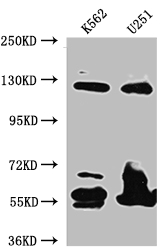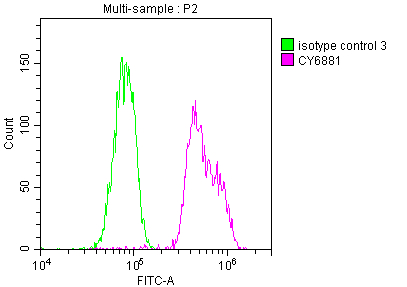The BUB1B recombinant monoclonal antibody is designed for the detection of human BUB1B protein in ELISA, WB, and FC applications and is produced using recombinant DNA technology. The BUB1B monoclonal antibody's gene is synthesized after sequencing the cDNA of the BUB1B antibody-producing hybridomas, which are produced by fusing myeloma cells with B cells that are isolated from an animal that was immunized with a synthesized peptide derived from human BUB1B. The synthesized gene is cloned into a vector, which is transfected into cells for cultivation. The resulting BUB1B recombinant monoclonal antibody is purified using affinity chromatography from the cell culture supernatant.
The BUB1B protein, also known as BUBR1, plays a crucial role in ensuring the accurate separation of chromosomes during cell division (mitosis). It is a key component of the spindle checkpoint, a surveillance mechanism that monitors the attachment of chromosomes to spindle microtubules and ensures that each chromosome is pulled apart correctly during mitosis. Additionally, BUB1B has been shown to have roles in other cellular processes such as DNA damage response and regulation of gene expression.







